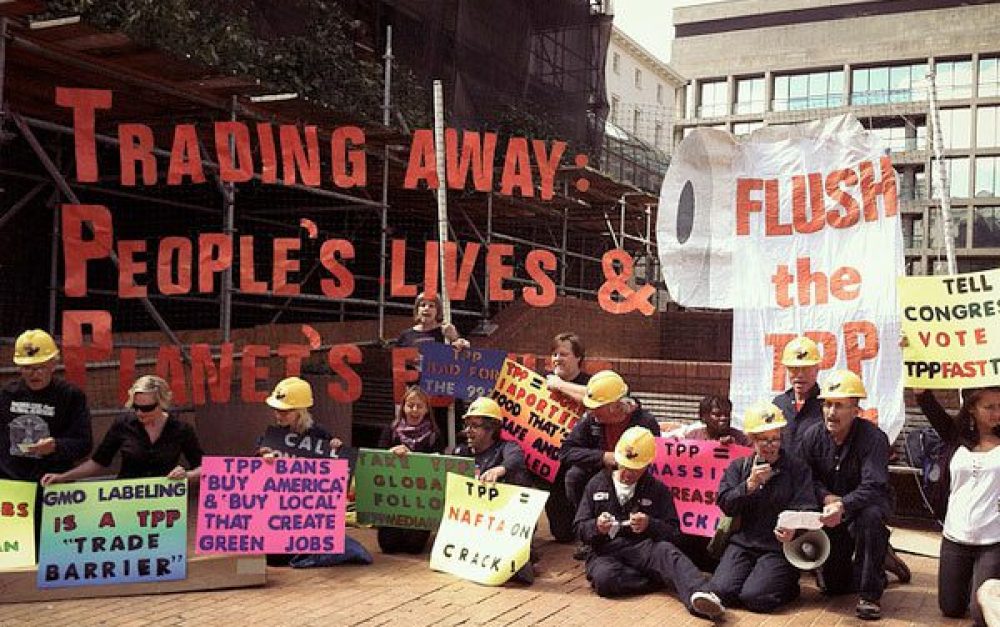Things are looking up for opponents of the Trans-Pacific Partnership (TPP). Although a bill to “fast track” this wide-ranging trade agreement was introduced late last year, opposition to quickly green-lighting the TPP has led Congressional leaders to slow down the process.
Labor and farmer organizations, among many others, have effectively made the case for more transparency before approving what will be the largest international trade agreement to date. And although President Obama is in Japan this week, seeking alignment on key issues within the TPP, it will not likely be signed into law in 2014.
From farmers to techies
Opposition to the TPP spans every sector imaginable. From agriculture to electronics, labor to healthcare, there are deep concerns about the looming trade agreement between the U.S. and 11 Asian countries. (For an impressive array of organizations actively opposing the TPP and the fast-track process, see the list compiled by the Citizens Trade Campaign.)
Farmers are joining forces internationally to warn of potential negative impacts to our food system. Last year the National Farmer’s Union came together with Japan’s Central Union of Agricultural Cooperatives (JA Zenchu) to speak out against key measures in the TPP that would prioritize global free markets above rural economies and domestic food production in each country.
Spokesperson for JA Group’s Norinchukin Research Institute, Tetsuro Shimizu, spoke about the need to protect local food production. He put it simply:
“The Japanese politicians who push for TPP, they don’t understand agriculture.”
Who’s at the table?
Critics of the TPP compare it to NAFTA and other multinational free trade agreements that the U.S. has signed. President Obama, however, is putting forth a vision of reformed free trade; he has said that his ideal TPP would contain safeguards for labor and environmental standards, unlike NAFTA. However, the Obama Administration wants Congress and the rest of us to take it on faith that things will be different this time around.
The Administration wants us to take it on faith that things will be different this time around.
Historically, there has been significant incongruity between what was promised with trade agreements of this scale and what has actually happened. Given the reality of our government’s track record on this front, the fast-track process continues to be a major focus for domestic opposition to the TPP.
Without fast track, the negotiating process would be more transparent and more democratic: more public input, more scrutiny and more power for the many concerned parties who — unlike Monsanto and other multinational corporations — aren’t sitting in the negotiation talks.
Stalled for now
So far, Congressional leadership is holding firm on their promise to oppose fast tracking the TPP. Senate Majority Leader Harry Reid and House Majority Leader Nancy Pelosi have asserted that Congress should maintain its authority to negotiate treaties, rather than handing it over to the executive branch. They want more than just a “yes” or “no” vote on the TPP, they want scrutiny and debate.
For now, the fast track bill is stalled — at least until the November elections. And the likelihood of the TPP being signed this year is getting slimmer by the day.
Take action » If you haven’t yet, urge your members of Congress to oppose fast tracking the TPP. Don’t let this landmark trade agreement happen behind closed doors.
Photo credit: coolrevolution.net/Flicker








